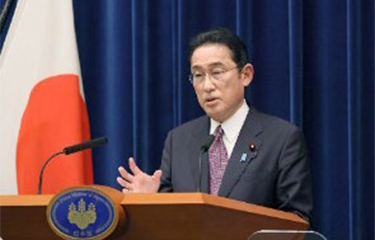Japan revokes Russia’s “most-favored nation” status

Japan will follow America’s lead by revoking Russia’s most-favored-nation (MFN) status, resulting in higher prices to Japanese consumers for most imports from the country.
MFN status allows a country to receive the best trade terms given by its trading partner, such as the lowest tariffs or highest import quota, ensuring all countries with the status are treated equally. By revoking the status, Japan will subject imports from Russia to higher tariffs.
The Group of Seven (G7) nations, consisting of Canada, France, Germany, Italy, Japan, the United Kingdom, and the United States, jointly announced the intention to revoke the status on 12 March.
Japan Prime Minister Fumio Kishida said at a 16 March press conference that Japan will also ban imports of a lengthy list of items being compiled by the Japanese government. However, Russia’s most-significant export to Japan, liquefied natural gas, will not be banned in order to secure stable energy supplies. Japan will also prohibit exports of luxury goods to Russia.
Withdrawing MFN status for Russia will raise Japan’s customs duty on crab from 4 percent to 6 percent and the duty on salmon and trout from 3.5 percent to 5 percent. This is likely not enough of a change to significantly alter the amount of these products being sold to Japan. Instead, it will likely cut into the profits of the Japanese processors.
One product that is unlikely to be affected is pollock roe. A large volume of pollock roe is processed in Japan to make mentaiko and tarako, and trade may be unaffected by the revocation of MFN status because a “temporary tariff rate” is currently in effect.
According to Japan Customs, a temporary rate – which is usually set due to the current needs of industry – always supersedes both the WTO (MFN) rate and the general rate, which is what Russian imports would be subject to without MFN status. The general rate is 10 percent, the WTO rate is 6 percent, and the temporary rate is 4.2 percent. Thus, unless pollock roe is subjected to an outright ban, Russia should maintain its price competitiveness against pollock roe from the United States.
Despite the competitive tariff rate, it may be difficult for Japanese firms to pay for Russian goods. As part of the 16 March update, Japan plans to “prevent financing to Russia from the leading multilateral financial institutions,” including the World Bank and IMF. The country had already committed to restricting transactions with Russia’s central bank, and isolating the country from the international financial system.
Several Russian banks have been banned from using the Society for Worldwide Interbank Financial Telecommunication (SWIFT). The Vietnam Association of Seafood Exporters and Producers said in early March that Russia’s ban from SWIFT was already complicating financial transactions.
Photo courtesy of the government of Japan






Share